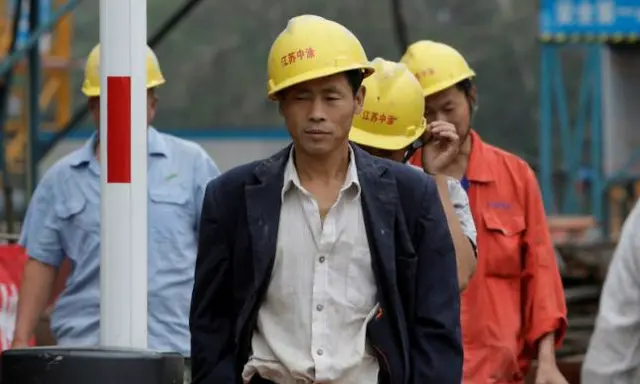Wages in China kept pace with economic growth in the first half of this year, but maintaining that would be difficult, the statistics bureau said on Sunday.
The bureau cited issues such as overcapacity in the coal and steel sectors as well as some declining agricultural prices as taking a toll on salaries.
Maintaining the relationship between the pace of growth and that of wage increases was a challenge requiring “close attention”, Wang Pingping, head of the National Bureau of Statistics’ household survey office, said on the bureau’s website.
Disposable household income, adjusted for inflation, rose 6.5 per cent in the first half of the year, compared with economic growth of 6.7 per cent, the statistics bureau reported on Friday.
Economic growth in the second quarter was faster than expected as a government spending spree and a housing boom boosted industrial activity.
But a slump in private investment growth points to a loss of momentum later this year.
The 6.7 per cent GDP growth during the second quarter was unchanged from the first quarter.
Several provinces have slowed or halted increases to minimum wages as companies face pressure from rising expenses and weakening demand.
Human resources vice-minister Xin Changxing this month called for a slowdown in wage increases in order to maintain competitiveness.
He said the government was concerned with resettling workers laid off in the steel and coal sectors and employment problems of fresh university graduates. More than 800,000 workers in the steel and coal sectors were likely to be affected by the economic changes, Xin said. He said demand for workers in the construction sector was also declining.
Xin said rising labour costs were not conducive to China’s competitiveness.
Only six places on the Chinese mainland raised the minimum wage from January to June.
Nationwide, wage increases stood at about 11 per cent in the first half of 2016, compared with 13.5 per cent for the same period last year.
The mainland plans to allocate 100 billion yuan (HK$116 billion) to help local authorities and state-owned firms finance layoffs in the steel and coal sectors this year and in 2017. Layoffs are expected to total 1.8 million.
(SOUTH CHINA MORNING POST)
 简体中文
简体中文

